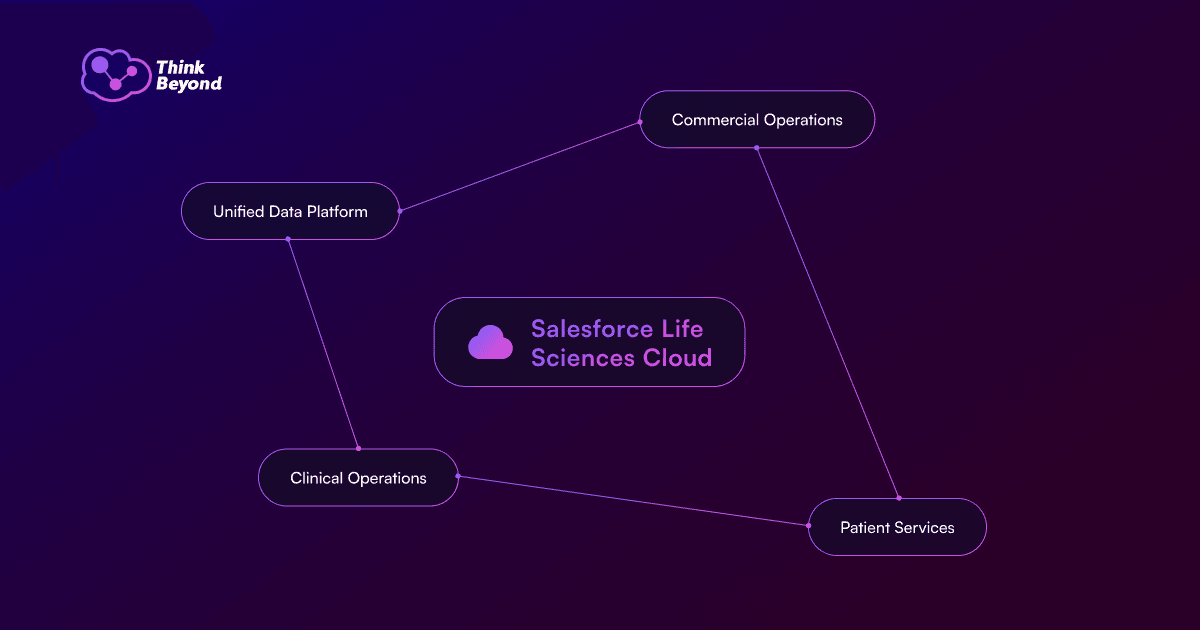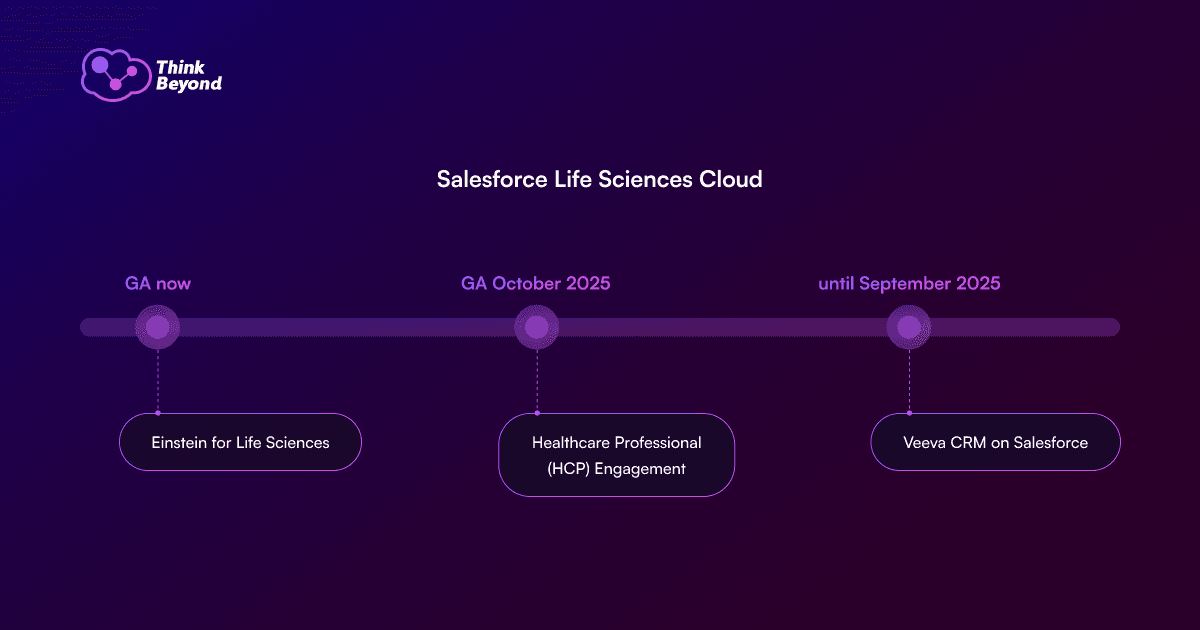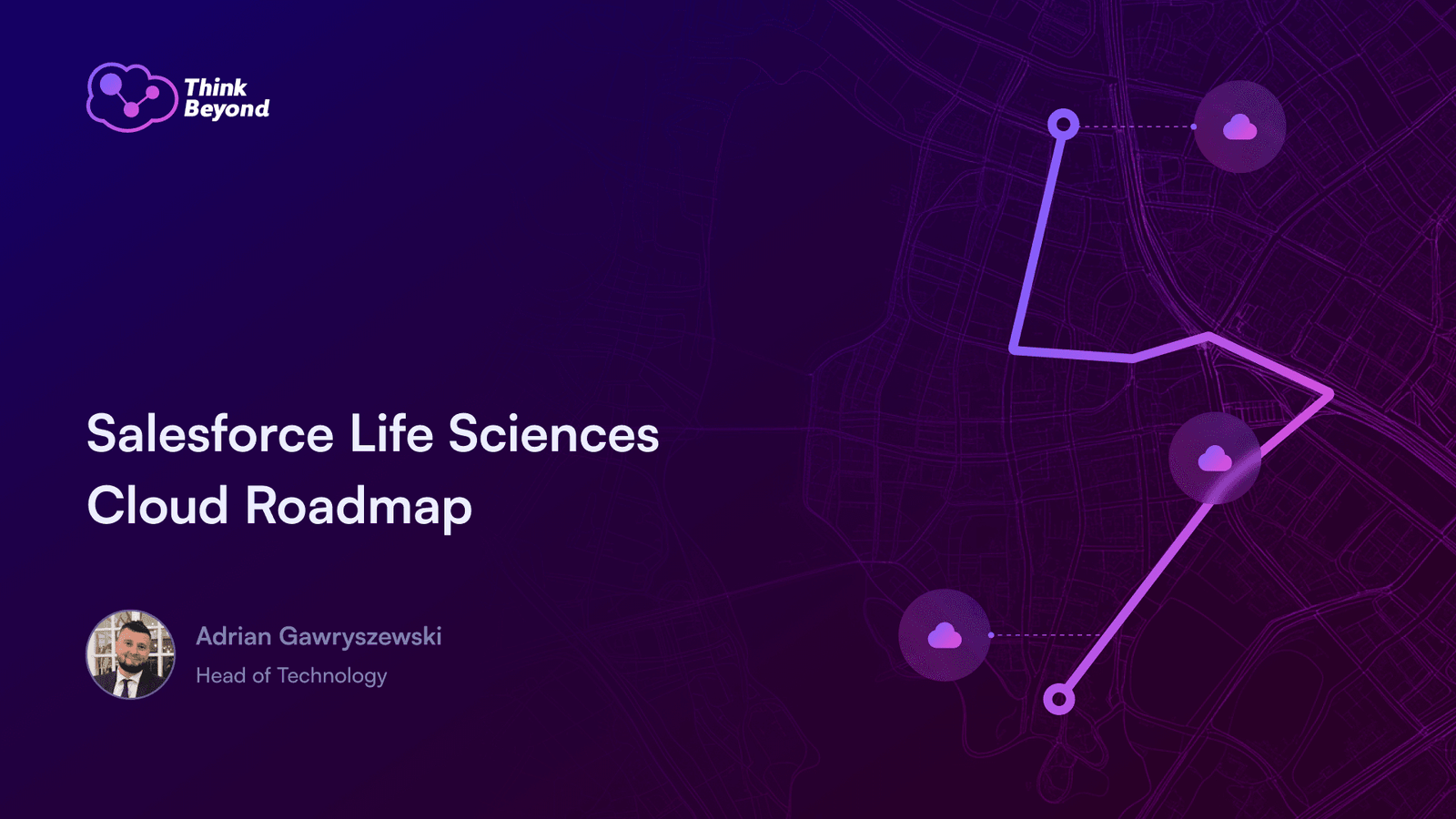Since Veeva announced its separation from Salesforce, the life sciences industry has seen significant change. In addition, Salesforce has deepened its relationship with IQVIA. All of this has impacted customers, their CRM operations, and the Life Sciences Cloud Roadmap.
- In which areas will these changes have the greatest impact?
- And what is the expected timeline for making the necessary adjustments?
- When will the migration process be complete?
Let’s take a closer look.
Key Features of Salesforce Life Sciences Cloud

Salesforce’s Life Sciences CRM Cloud offers a comprehensive suite of features tailored to the pharmaceutical and medical technology sectors.
- Unified Data Platform: Integrates data from various sources to create comprehensive profiles for patients and healthcare professionals (HCPs), enhancing engagement and personalization.
- Clinical Operations: Provides tools for participant recruitment and enrollment, along with chain of custody management to ensure compliance throughout clinical trials.
- Commercial Operations: Utilizes AI-enhanced strategies for market engagement, offering intelligent recommendations for pricing and inventory management to optimize sales efforts.
- Patient Services: Validates insurance coverage and facilitates personalized patient programs, ensuring that patients receive the support they need throughout their treatment journey.
Roadmap for the Implementation of Commercial Operations
It uses AI to improve the commercial lifecycle for pharmaceutical and medical device companies. Companies can predict trends and optimize pricing strategies through inventory management, customer relationship management, and predictive analytics tools. Here is a quick look at the Salesforce Life Sciences Cloud commercial offerings:
Health Analytics
Salesforce’s healthcare analytics based on Tableau Cloud guarantees compliance with the strictest HIPAA standards. This platform optimizes care delivery by providing insights into patient data while tracking the entire manufacturing and distribution process.
Sales AI
Salesforce’s Sales AI solution for the life sciences industry leverages Agentforce, autonomous agents that streamline sales processes. Additionally, sales emails are crafted with generative AI, enabling tailored communication with healthcare professionals and patients.
Einstein
Salesforce Einstein in life sciences automates capturing and syncs relevant customer and sales information from emails and calendars. It leverages conversation intelligence to provide insights on customer sentiments regarding competitors and products, while also utilizing predictive analytics to forecast trends and inform strategic decisions.
When is implementation planned? All features described are generally available now.
Clinical Operations Implementation Roadmap
For the clinical space, Salesforce has prepared the following solutions: Data Cloud for Health, Chain of Custody, and Participant Management. Here is a brief summary of each:
Data Cloud for Health
Its primary goal is to provide actionable, 360-degree views of the customer. Data Cloud extends each Salesforce cloud-Sales Cloud, Service Cloud, Marketing Cloud, and Commerce Cloud-by integrating data from multiple sources. This approach enables healthcare companies to improve patient engagement and care delivery while meeting industry standards.
Chain of Custody Management
Chain of Custody Management for Life Sciences tracks all custody-related changes in therapy orchestration workflows. This ensures patient safety and compliant record keeping throughout all stages of cell and gene therapies. The system validates records with electronic signatures, which is important for keeping patient data secure and ensuring regulatory compliance.
Participant Management
It streamlines the clinical trial recruitment and enrollment process by orchestrating every step from initial outreach to enrollment. Key features include Criteria-Based Search and Filter for finding appropriate trials, Omnistudio components for digitizing prescreening and enrollment, and Einstein Candidate Matching, which automatically matches candidates to appropriate trials, increasing the efficiency and accuracy of participant selection.
When is implementation planned? All features described are generally available now.
Pharma CRM Implementation Roadmap
The concept is based on the creation of an engagement platform. One place to manage drug samples, capture provider consent, and streamline dosing requests across multiple channels. The focus is on two components:
Healthcare Professional (HCP) Engagement
The main goal is to provide a 360-degree view of HCPs. And help pharmaceutical companies get the right prescriptions to the right people.
Einstein for Life Sciences
Einstein automates manual tasks such as targeted email outreach and generates knowledge articles and service responses. This AI-driven functionality ensures timely and relevant communication with healthcare professionals and patients, ultimately improving the overall customer experience.
When is implementation scheduled?
- Einstein for Life Sciences: Generally available now.
- Healthcare Professional (HCP) Engagement: GA October 2025

Life Sciences Cloud and the Implications for the Customers
With Veeva’s transition from Salesforce to its proprietary platform, existing customers face significant implications. They can continue using Veeva CRM on Salesforce until September 2025, after which they will need to migrate to the new Veeva Vault platform.
The current Veeva CRM will enter stability mode in December 2023, providing essential updates until the full transition is required by September 2030. Customers must prepare for potential data migration challenges and adapt to new functionalities as Veeva aims to enhance user experience and operational efficiency. The key date is the general availability of Vault CRM in April 2024 and first migrations to start in 2025.
What is going on in the life sciences industry? Is there more revenue to come? The future shows. The CRM market for this industry is worth $4 billion and is expected to grow at a CAGR of 8.4% from 2022 to 2030. Certainly, the changes in the life sciences industry will have many implications for both CRM vendors and customers.

